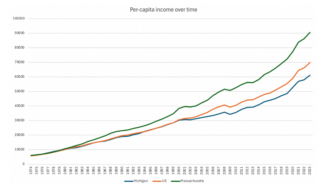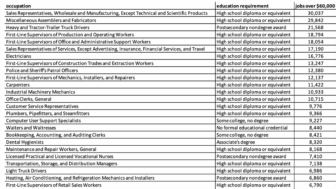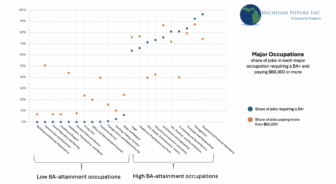![]() Last week I heard a sad but important interview with Matthew Desmond, Pulitzer prize-winning author of Evicted: Poverty and Profit in the American City and now founder of The Eviction Lab, an effort to compile and analyze eviction data nationally. He made a compelling case that eviction is a national emergency on par with the opioid crisis and in itself, a cause, not just an effect, of poverty. When a family is evicted, even if they do not become homeless, studies show they face greater incidence of mental and physical health issues, and job loss.
Last week I heard a sad but important interview with Matthew Desmond, Pulitzer prize-winning author of Evicted: Poverty and Profit in the American City and now founder of The Eviction Lab, an effort to compile and analyze eviction data nationally. He made a compelling case that eviction is a national emergency on par with the opioid crisis and in itself, a cause, not just an effect, of poverty. When a family is evicted, even if they do not become homeless, studies show they face greater incidence of mental and physical health issues, and job loss.
The primary challenge, as Desmond describes it, is that for the last two decades, most incomes have remained flat (an issue we frequently discuss here at MFI) while housing costs have soared. Renters are spending a greater portion of their incomes on housing. Eventually, it becomes too much. He also found that only about one in four families who qualify for federal housing assistance receive it—leaving everyone else to fend for themselves.
I was curious how Michigan fared so I skimmed through some of the data at the Eviction Lab. Given what we understand at MFI about the current state of Michigan families—40 percent can’t afford basic necessities and many more are barely getting by on low-paying jobs—I wasn’t surprised that eviction is a problem here.
According to the lab’s data, there were more than 34,000 evictions in Michigan last year (almost certainly an underestimate because the database can only count official evictions that went through the courts). Looking through the Eviction Lab’s rankings, by eviction rate, I noted that:
- Of big cities nationwide, Warren has the ninth worst eviction rate.
- Michigan has five cities in the worst 21 mid-sized cities (Muskegon, Saginaw, Battle Creek, Dearborn Heights, and Jackson).
- Three of the worst five small town/rural areas for eviction are in Michigan.
The most heartbreaking statistic that Desmond shared is that the median age for someone being evicted in America is 9 years old.
This week I came across a policy brief from Jennifer Erb-Downward and Michael Evangelist at U of M on homelessness and housing instability in Michigan schools. Their research found that Michigan has the 6th highest number of homeless students in the country (vs. the 10th greatest number of students), and that housing instability is a problem all around the state and across urban, rural, and suburban areas. Twelve Michigan public school districts have more than one in seven kids struggling with homelessness. Housing instability, not surprisingly, leads to higher dropout rates and greater vulnerability for kids.
While these two research projects don’t directly reference each other, I couldn’t help but see the connection.
Michigan’s children need an expanded safety net, as we recommend in our report, Sharing prosperity with those not participating in the high-wage knowledge-based economy. One of our primary recommendations, a case worker approach to assisting families who need support, is one way to begin to address with the housing and poverty issues that are hurting Michigan families—including their 9-year-old children.







